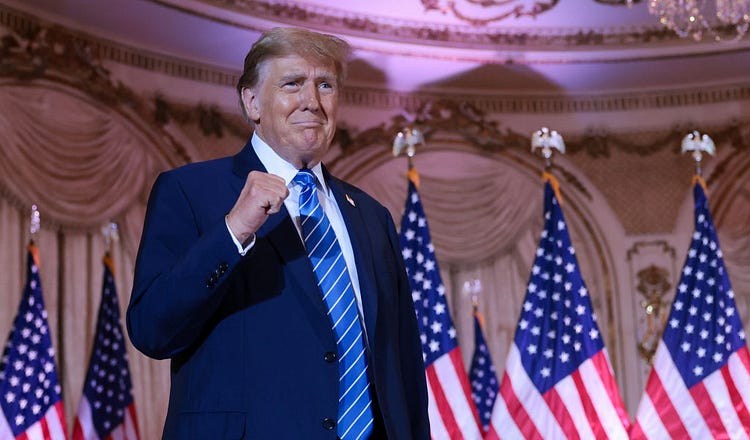A Super Tuesday for Donald Trump

Donald Trump at a Mar-a-Lago election-night party on Super Tuesday. (Photo by Win McNamee/Getty Images)
We chew through the primary results and brace for a Biden v. Trump rematch. Plus: TikTok, Supreme Court sanity, and much more.
562
Time to dust off those pussy hats, folx.
H.L. Mencken famously defined democracy as the “theory that the common people know what they want, and deserve to get it good and hard.” For all the talk of Biden-Trump being the rematch no one wanted, turns out it’s the rematch primary voters want—and the rest of us are going to get it, good and hard.
Last night…
Continue Reading The Free Press
To support our journalism, and unlock all of our investigative stories and provocative commentary about the world as it actually is, subscribe below.
$8.33/month
Billed as $100 yearly
$10/month
Billed as $10 monthly
Already have an account?
Sign In

